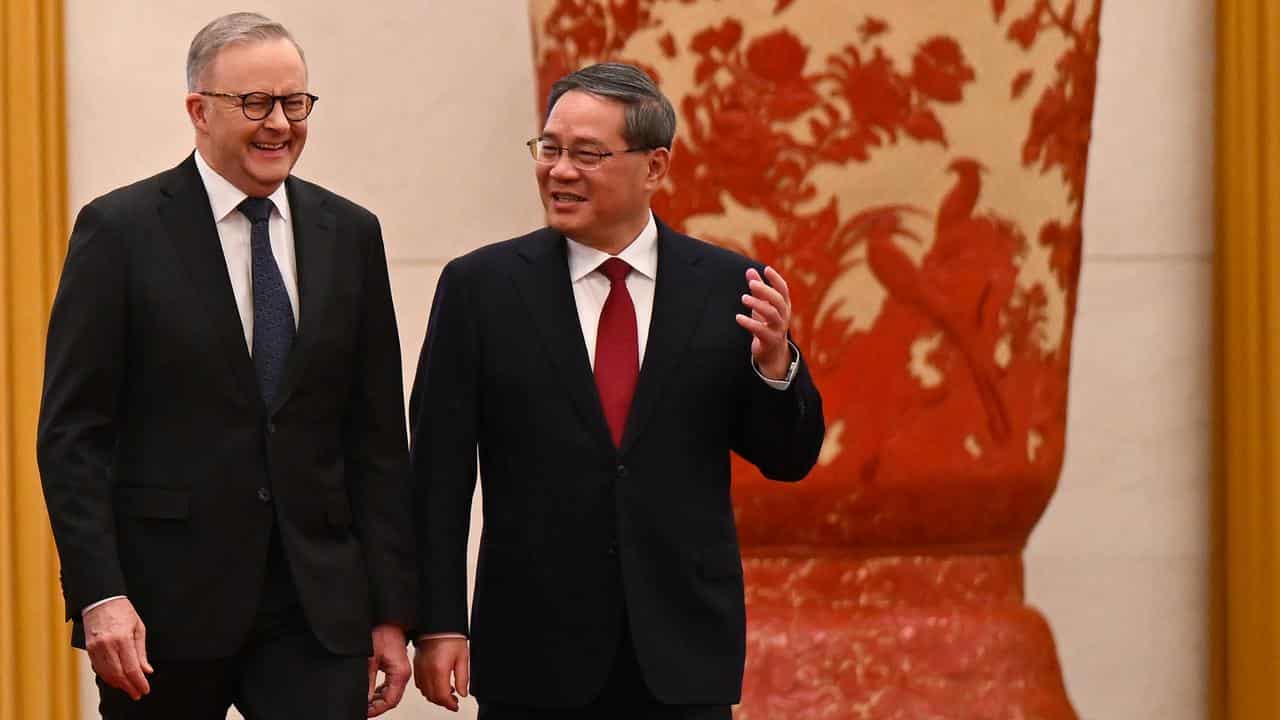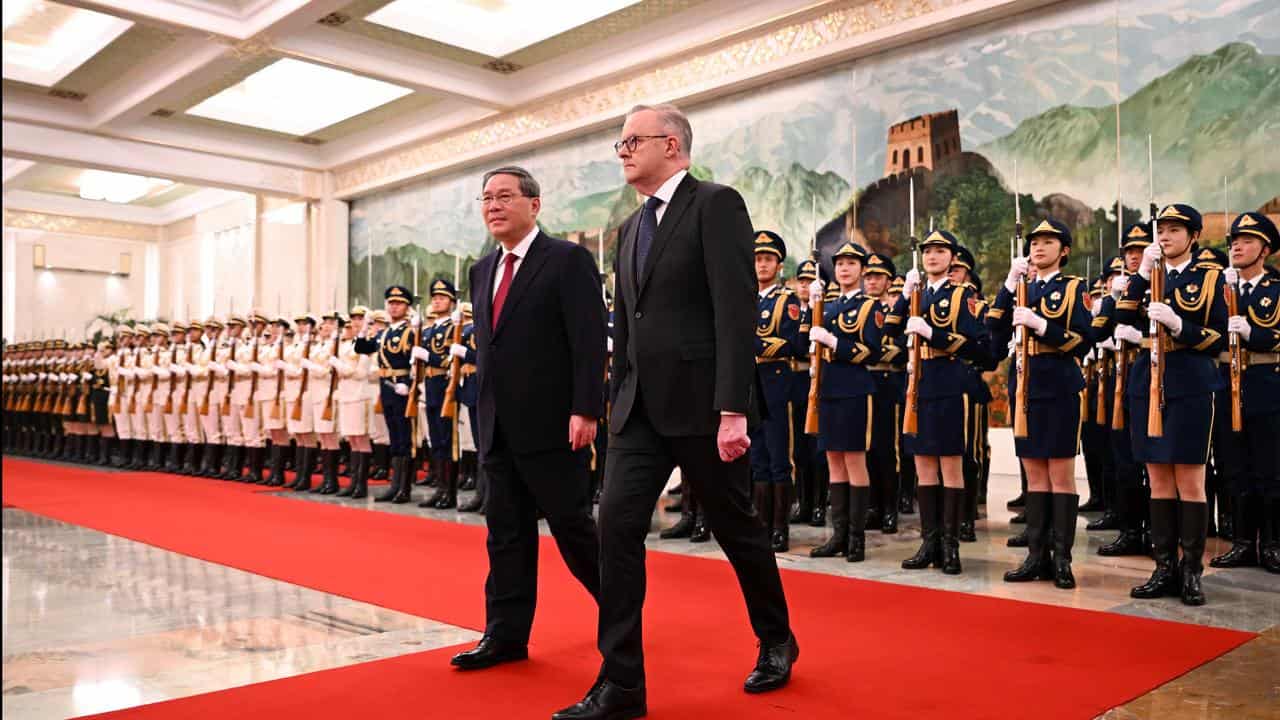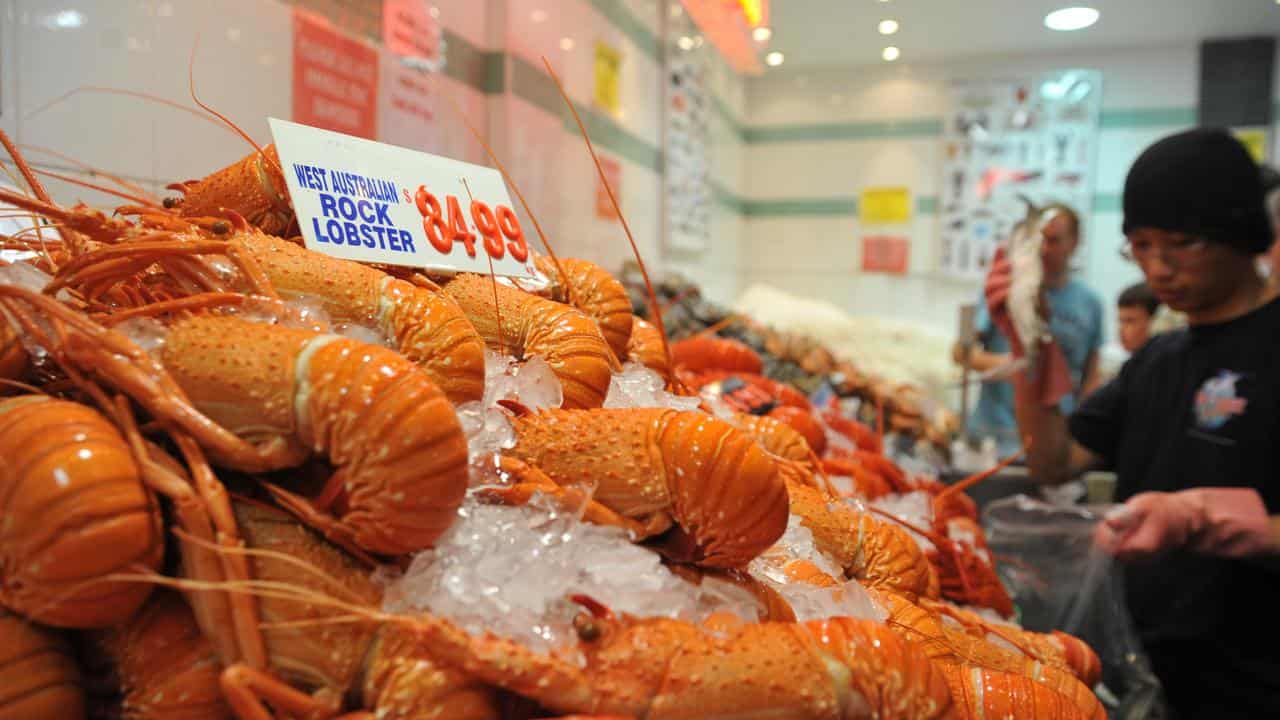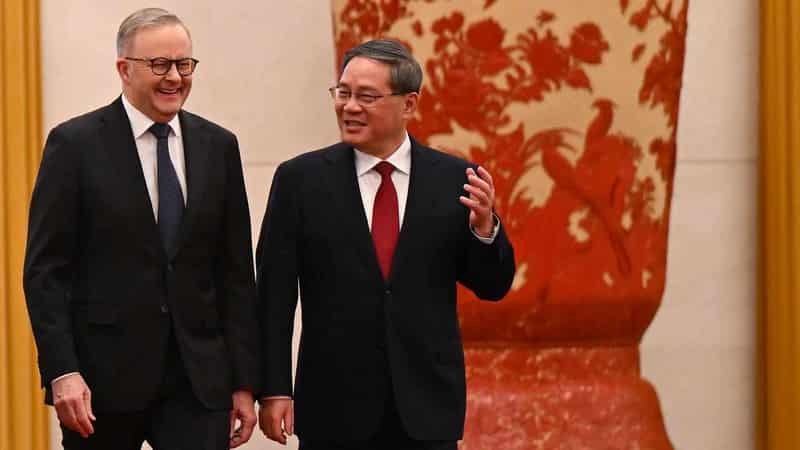
Chinese Premier Li Qiang will travel to Australia for a four-day visit as the two nations look to restabilise trade ties.
China's second-highest official will arrive in Australia on Saturday and stay until June 18.
Premier Li will hold talks with Prime Minister Anthony Albanese as part of an annual leaders' meeting in Canberra followed by a state lunch attended by politicians, business representatives and community leaders.

The Chinese premier will travel to Adelaide and Perth, taking part in an Australia-China CEO roundtable alongside Mr Albanese.
The pair will also attend a community event with members of the Chinese-Australian diaspora.
It will be the first visit to Australia by a Chinese premier for seven years.
The visit was a critical step to strengthening links between the two nations, Mr Albanese said.
"Welcoming the Chinese premier to Australia is an opportunity for us to advance our interests by demonstrating our national values, our people's qualities and our economy strengths," he told reporters on Tuesday.
"Australia continues to pursue a stable and direct relationship with China with dialogue at its core, our approach has been patient, calibrated and deliberate."

Ahead of the trip, China lifted trade sanctions imposed on Australian beef producers in 2020 when diplomatic relations were at a low ebb.
Similar sanctions were earlier eased on Australian coal, wine, barley.
While Chinese trade barriers remained on Australian lobsters, Mr Albanese said he was hopeful the barriers could be removed.
"I certainly would like to see that any impediments to our lobsters and crayfish, our magnificent seafood, being removed," he said.
"Australia has an interest in trade with China, China has an interest in receiving our magnificent goods because of their quality, so this is a win-win.
"We'll continue to put forward our arguments there, as we will continue to pursue Australia's interests."

Mr Albanese made a trip to China in November, where the two leaders held talks.
The prime minister said he would reiterate concerns about incidents involving China's military towards Australian forces.
An Australian Navy helicopter was forced to take evasive action to avoid being hit by Chinese flares during an incident in May.
"(Premier Li) will be very aware of Australia's position, which is that Australia was engaged in legitimate international activity, and that should not have occurred, because it was dangerous, and should not have happened," Mr Albanese said.
"We will certainly be putting that forward."
Business Council of Australia chief executive Bran Black said the Chinese premier's visit was important for boosting trade links.
"More than 20 per cent of Australian jobs rely on trade, so growing our export opportunity is fundamental to Australia’s continued economic success, creating new jobs and growing new businesses," he said.









